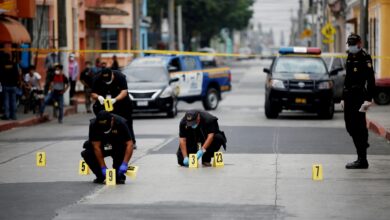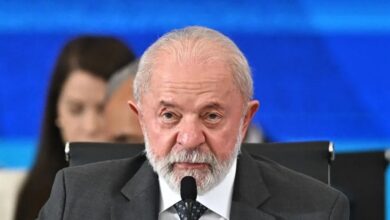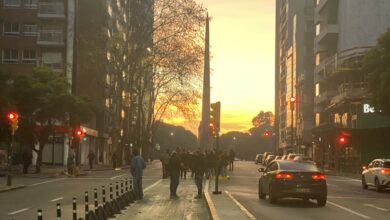Why Iván Velásquez is not welcomed in Guatemala?
Iván Velásquez, who leads the anti-corruption commission of the UN in the Central American country, will have to do it from abroad

The president of Guatemala, Jimmy Morales, announced on Tuesday, September 4, that he will deny entry to Iván Velásquez, head of the Commission Against Impunity in Guatemala (CICIG, in Spanish). The measure has reached such a degree that the president has asked the airlines not to transport the Colombian lawyer back to the country.
Leer en español: ¿Por qué Guatemala se niega a recibir al diplomático colombiano Iván Velásquez?
However, this has not been the beginning of the tensions between Morales and Velásquez. Last Friday, the Guatemalan government determined that it would not renew CICIG's mandate beyond 2019.
The reason why Iván Velásquez is so uncomfortable for the Morales government is that he led the debate to take away the constitutional privileges to the president to investigate him for alleged illicit financing during his campaign in 2015.
Nevertheless, it is not the first time either that the lawyer has problems with the administration. Last year, Morales called for Velasquez's immediate exit from the country, but the Constitutional Court of Guatemala reversed the decision.
Velásquez was also the leader of the investigation of "La Línea", a corruption case that involved several government officials of former President Otto Pérez Molina, including his vice president Roxana Baldetti. According to the CICG, both the president and Baldetti received large bribes to award contracts.
Is there justice in Guatemala?
In the press release of the Morales government, the country's National Security Council suggested that Velásquez is a threat to "governability, institutionality, justice, and peace in the country."
Why is a person who has contributed to the fight against corruption qualified in this way?
Both the Commission and Velásquez became an obstacle for corrupt mafias in power circles in Guatemala. It is not surprising that Morales wants him out of the country and continue with his task of investigating him.
Also read: 11 countries will welcome Venezuelans with expired documents
The corruption of the Central American country is so big, that Guatemala is the fourth worst qualified in this matter in the American continent, according to the corruption perception index of the NGO Transparency International, published in 2017. Guatemala is above only of Nicaragua, Haiti, and Venezuela.
On the other hand, according to World Justice Project, Guatemala is the 96th country out of 113 in the trust index to justice, between 2017 and 2018. In the region, it is the fifth worst ranked in front of Nicaragua, Honduras, Bolivia, and Venezuela.
This NGO measures 44 different aspects, among which are the limits of the national legislature, the legality of power transitions in the branches of the legislature, the dissemination of laws, or the degree of influence of the powers in judicial decisions.
Corruption and the lack of trust in justice affect Guatemala. Efforts like those of CICIG and Velásquez could improve transparency conditions in the country, but the policies of Morales and his government send a clear message that this is not their wish.
Guatemala turned out to be an example of democracy once Otto Pérez Molina left office amid corruption scandals.
If justice is obstructed, who will make political control in one of the most corrupt countries in Latin America?
LatinAmerican Post | Iván Parada Hernández
Translated from “¿Por qué Guatemala se niega a recibir al diplomático colombiano Iván Velásquez?”





